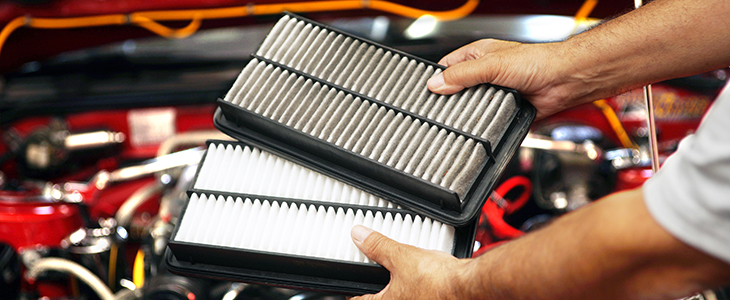
An motor vehicle air filter is a crucial component in every vehicle, responsible for ensuring that the air entering the engine is free from debris, dust, and other bmc air filter particles. Clean air is significant for the engine’s combustion process, as it directly impacts the vehicle’s performance, fuel efficiency, and longevity. When air will filter are clogged or dirty, they restrict airflow to the engine, reducing its power to perform at its peak. Without proper filtering, fibers can accumulate in the engine, leading to wear and potential damage over time. Thus, the air filter is not only about performance but also about protecting the engine from toxins that may reduce its life.
The design and construction of an motor vehicle air filter have evolved significantly over the years. Today’s air will filter are made with materials specifically engineered to trap the tiniest fibers, often using a combination of paper, cotton, or unnatural fibers. There are different types of air will filter in the market, including paper, foam, and cotton gauze. Each material has unique properties, with paper will filter being the most common and affordable, while cotton and foam will filter are created for higher performance and are often reusable. High-performance vehicles are able to use advanced air filter types, while regular voyager vehicles typically rely on simpler, more cost-effective will filter.
Motor vehicle air will filter are not just about keeping out dirt; they also help out with optimizing the air-fuel mixture, a critical aspect of engine efficiency. Modern applications are sensitive to the air-to-fuel ratio, and an air filter enabling the right amount of clean air helps take care of the ideal combustion balance. Inadequate air due to a clogged filter causes the engine to run “rich, ” meaning there is more fuel than air in the mixture. This results in reduced fuel efficiency and increased emissions. However, too much air can cause the engine to run “lean, ” potentially leading to overheating and damage to engine components.
Regular maintenance of air will filter is essential for sustained vehicle health and performance. Typically, air will filter should be replaced every 12, 000 to 15, 000 miles, though this varies depending on driving conditions. For instance, vehicles frequently driven in dusty or sandy environments may necessitate more frequent filter replacements. Some vehicle models come equipped with service indicators that tell the driver when the filter needs attention. However, regular visual inspections are also recommended, as a good filter that looks clean may always be clogged with microscopic fibers that can prevent airflow.
Different types of air will filter come with distinct advantages and considerations. Paper will filter are throw-aways and generally inexpensive, making them popular for everyday vehicles. Foam will filter, on the other hand, are often used in off-road and high-performance vehicles as they provide better filtering and can be cleaned and reused. Cotton gauze will filter are also reusable and are popular in the aftermarket sector for those looking to enhance their vehicle’s performance. These high-performance will filter allow greater airflow while still offering effective filtering, though they are more expensive and may require seasons re-oiling.
Aftermarket performance air will filter have become increasingly popular among enthusiasts who seek to maximize their vehicle’s output. Brands like K&N, AEM, and Airaid offer high-performance will filter that claim to improve power and torque by increasing the amount of air that reaches the engine. These will filter use specialized materials to trap fibers without setting airflow, though it’s worth noting that some aftermarket will filter may necessitate more frequent maintenance. Such advancements may not significantly impact a typical commuter vehicle but can make a noticeable difference in sports cars and trucks used for towing or other demanding tasks.
One of the lesser-known benefits of maintaining a clean motor vehicle air filter is improved fuel economy. A clean filter ensures that the engine receives the optimal amount of air, promoting efficient fuel combustion. Studies have shown that a clogged air filter can reduce fuel efficiency by up to 10%. This translates to additional costs at the pump, making air filter replacement a simple and cost-effective way to save money in the long run. In regions with high fuel prices, the tiny investment in maintaining a clean air filter can pay for itself quickly through fuel savings.
Motor vehicle air will filter also play a role in reducing emissions, which is increasingly important in the context of global environmental concerns. A clogged air filter can lead to incomplete combustion, resulting in higher emissions of harmful gases like carbon monoxide and hydrocarbons. For vehicles required to pass emissions testing, a clean air filter can make a critical difference. By ensuring efficient fuel combustion, a clean filter contributes to lower overall emissions, making it a simple yet effective tool in the fight against smog and climate change.
While air will filter are often overlooked, they’re among the most accessible parts for DIY maintenance. Replacing an air filter requires minimal tools and can usually be practiced within minutes, even by especially those with limited motor vehicle knowledge. Many vehicle manufacturers place air will filter in accessible locations, making it easy for drivers to check and replace them. This easier maintenance encourages car owners to take charge of this aspect of vehicle upkeep, potentially saving on labor costs associated with professional checking.
In conclusion, motor vehicle air will filter are an essential component that significantly impacts vehicle performance, efficiency, and emissions. Whether you’re a regular driver or an enthusiast, maintaining a clean air filter is key to optimizing your vehicle’s operation and extending its life. By understanding the different types of will filter, their maintenance requirements, and the benefits they offer, drivers can make informed choices that align with their driving needs and environmental considerations.
